The appearance of our hair, much like our skin, holds high priority as one of the most important aspects of our health. The difference between a good or bad “hair day” is so substantial it can control our entire outlook on life. We spend hundreds each month trying to achieve shiny, voluminous locks or even default to hair extensions when our own efforts seem impossible. Your hair is one of the first things that others may notice about you, not to mention the significant impact it has on how we view ourselves. Regardless, we are drawn to healthy-looking hair, and we’ll pretty much do anything we can to achieve it!
Although we are constantly applying external forces to our hair (i.e., oils, creams, conditioners, etc.), many of us are forgetting that healthy hair starts from the inside. Without adequate nutrients or a stable environment to nourish hair follicles, our hair will suffer before it even exits our scalp. Let’s discuss some of the factors that affect hair health and how medicinal mushroom extracts can combat these!
Chaga mushroom to strengthen hair and boost growth

Oxidative stress plays a major role in the aging process. Reactive oxygen species or free radicals can directly damage cell membranes, lipids, proteins, and DNA [1]. Our bodies carry defence mechanisms against these reactive molecules that work by reducing their amount or neutralizing their reactivity [1]. However, as we age, the production of free radicals increases as our own defense mechanisms decrease and this imbalance results in oxidative stress. Oxidative stress then results in aging which can manifest through our skin and hair. In fact, there is evidence that oxidative stress may be one of the mechanisms that contribute to hair graying and hair loss [1]. Although we may try avoiding sources of oxidative stress, they are always present in our environment; smoking, pollution, IVR, even microbial or irritant inflammation in the body can contribute to oxidative stress [1].
Most of you have likely heard about antioxidants and how important they are for our health. They are present in many fruits and vegetables and help our bodies balance out free radicals to lessen or prevent the negative effects they may impose. Inonotus obliquus, often referred to as Chaga, is a mushroom commonly known for its powerful antioxidant abilities. It has one of the highest ORAC (Oxygen Radical Absorbance Capacity) values on the planet! ORAC informs us on the ability of a substance to neutralize free radicals so that they do not overpower our antioxidant capabilities and cause oxidative stress.
As mentioned, when free radicals accumulate in our bodies, one of the ways in which we suffer is through the skin and hair, especially in regard to premature aging. Because Chaga is so powerful against the development of oxidative stress, its use may slow the process of hair graying and hair loss [1]. One study found that the triterpene compounds in Chaga demonstrated pro-proliferative effects on HFDPCs (human follicle dermal papilla cells), meaning that the mushroom extract had stimulating effects on hair growth [2]. In fact, Chaga’s effects were more potent than minoxidil (Rogaine), which is an anti-hair loss agent [2].
What are the effects of Reishi mushrooms on our hair and scalp?

Ganoderma lucidum, commonly known as Reishi, is another functional mushroom that may benefit hair health. Reishi mushroom benefits are extensive, but much like Chaga, the fruiting body extracts of Reishi have powerful antioxidant activities that may prevent premature aging of hair [3]. However, Reishi’s ability to reduce stress and anxiety is another way in which it may promote healthy hair.
Telogen effluvium is a type of temporary hair loss associated with high stress and anxiety levels [4]. After a significant stressor or triggering event occurs, this can push a large amount of hair follicles into their resting phase. Several months later, these affected hairs begin falling out from actions as simple as combing or washing your hair. Additionally, poor sleep as a result of stress and anxiety can further exacerbate the decline in hair health [5].
Reishi has illustrated anti-anxiety effects in many research studies, especially due to its constituents of phenols and flavonoids [5]. Anxiety is often linked to difficulties with sleep as excess worrying and racing thoughts make it difficult to fall and stay asleep throughout the night. Reishi’s ability to relax an individual was further studied by assessing its effect on sleep and different phases of sleep [6]. The study, which used the fruiting body extract of Reishi, exhibited that a 3-day administration of the mushroom supplement has the potential to increase total sleep time and the length of non-rapid eye movement (NREM) sleep, which would result in a more restful sleep [6]. The mechanism underlying this powerful action of Reishi may lie in its ability to modulate cytokines, such as TNF-alpha, which are involved in sleep regulation and the promotion of NREM sleep [6].
Reishi may also target balding by reducing levels of dihydrotestosterone (DHT) [7]. High levels of DHT have been found to induce early hair regression, hair miniaturization, hair density loss, and changes in hair morphology [8]. In a research study exploring the anti-androgenic effects of 20 species of mushrooms, Reishi had the strongest effect in inhibiting testosterone [7]. Reishi exhibited the ability to reduce 5-alpha reductase levels, meaning it was able to prevent the conversion of testosterone into DHT [7].
Functional mushrooms, such as chaga and reishi, have been studied to provide a wide variety of health benefits, one of which is hair health. The next time you look for tips for growing long, healthy hair or grab the currently trending hair serum for hair growth, remember that internal care is just as important as external care!
We hope you have found this article informative. If you have any questions or comments, please feel free to leave them in the comment section below!
By Silvana Jakupovic — BSc and 4th Year Student of Naturopathic Medicine (CCNM-Boucher)



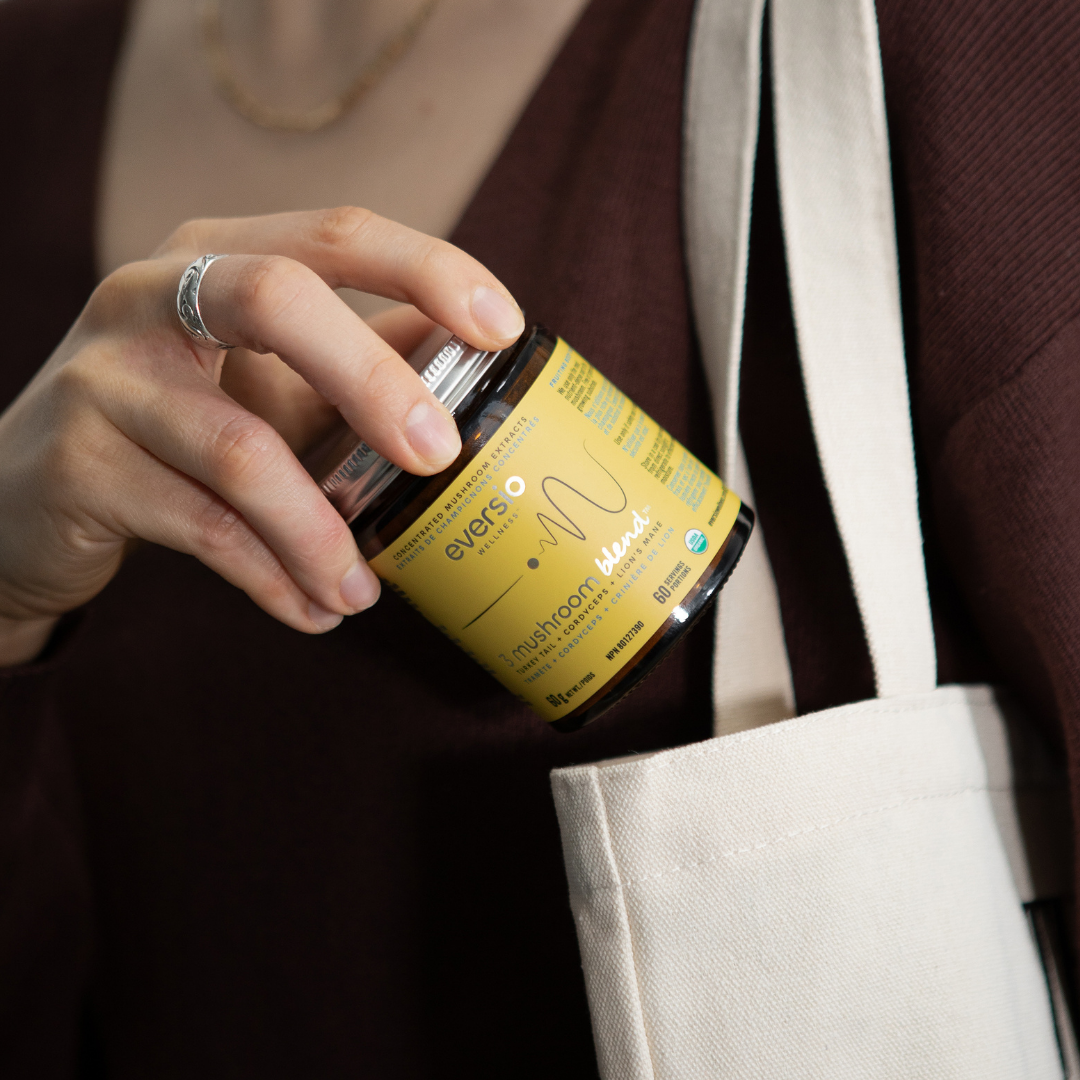

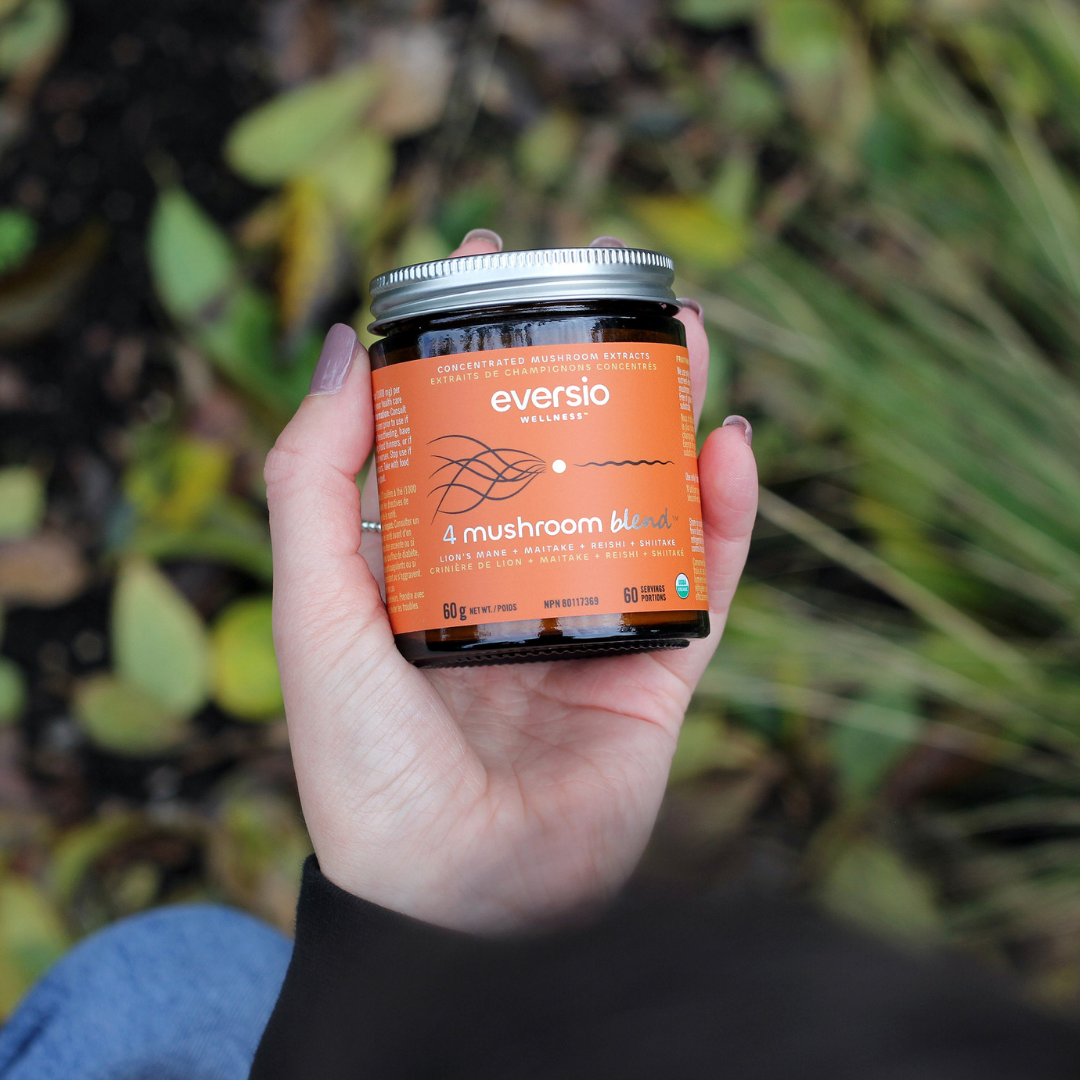

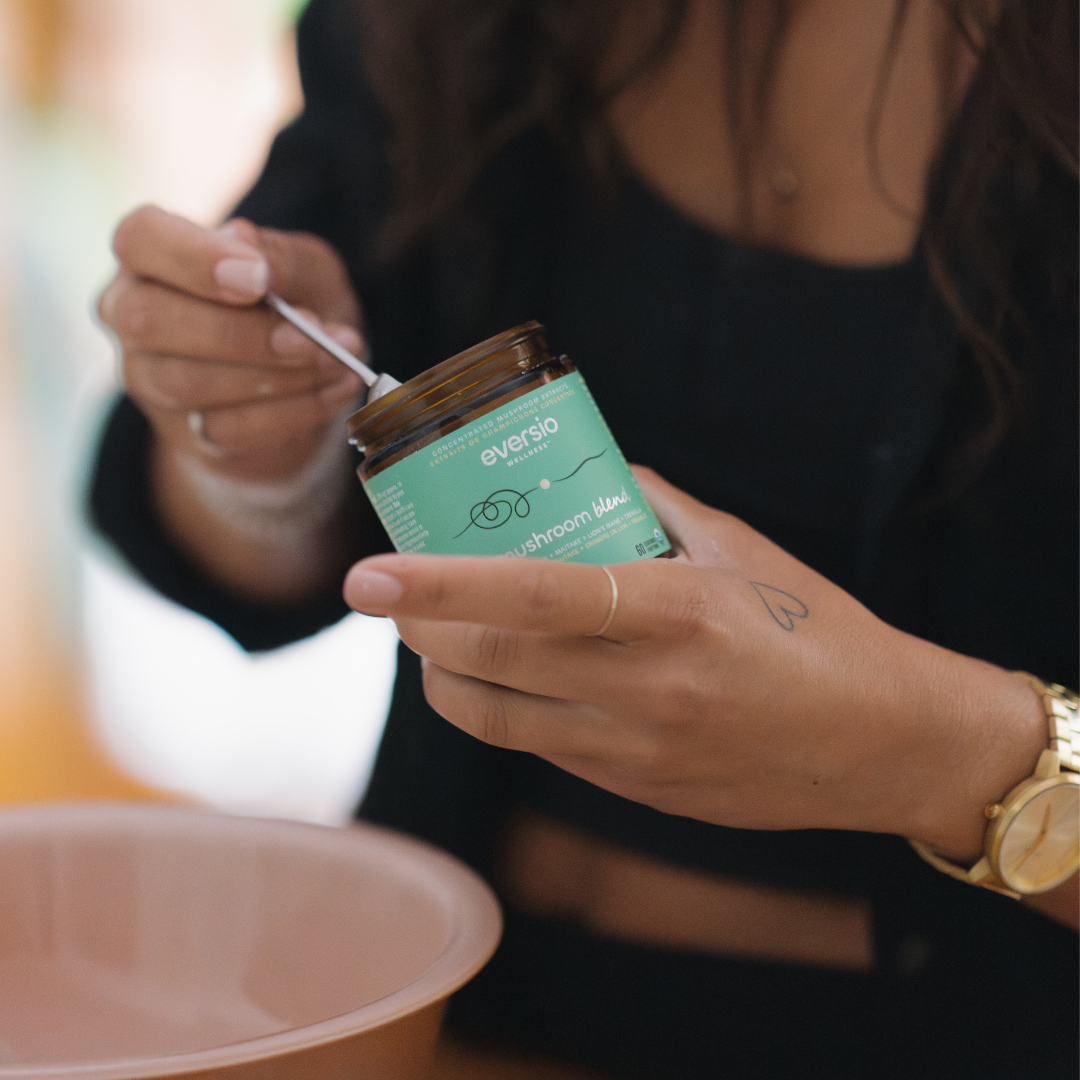

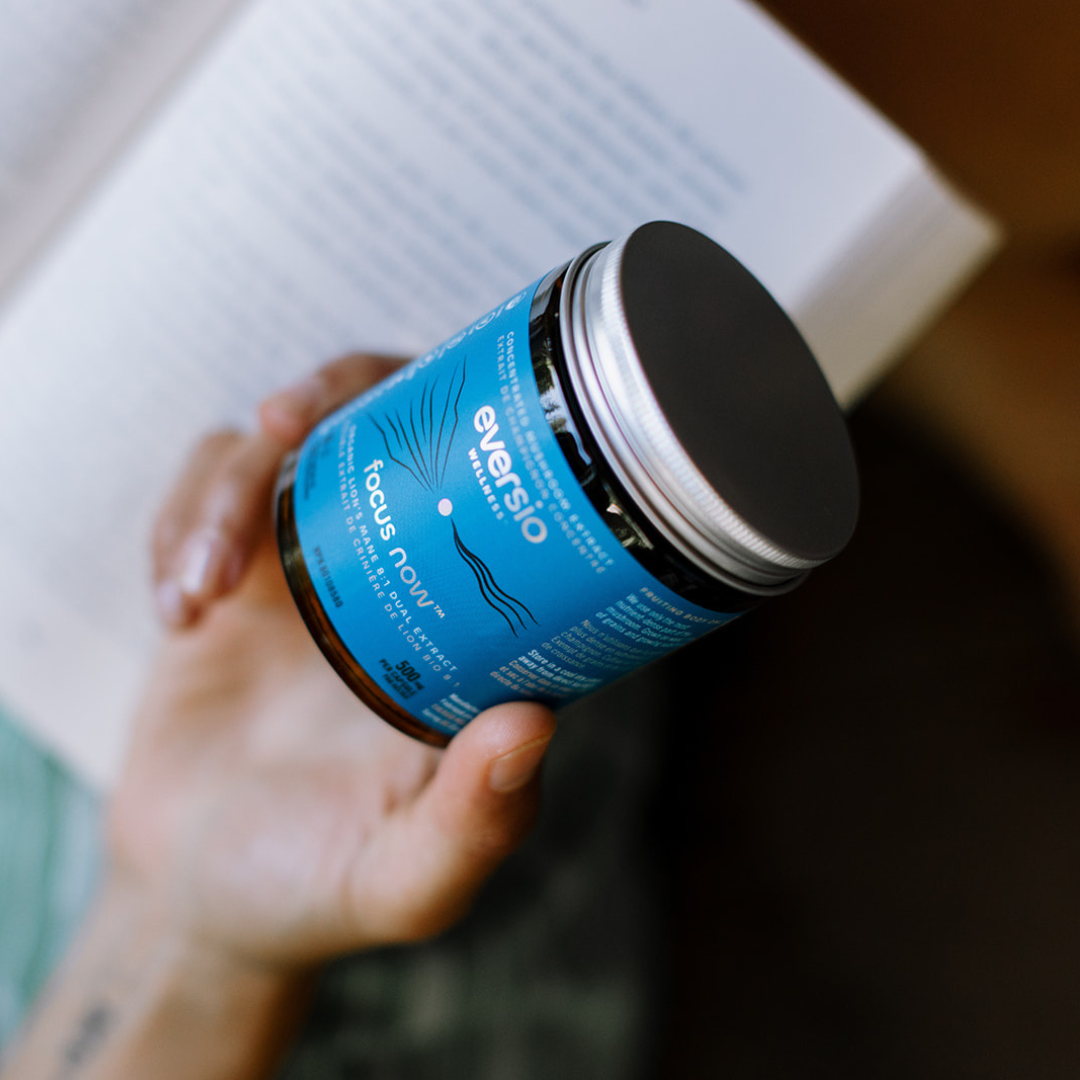

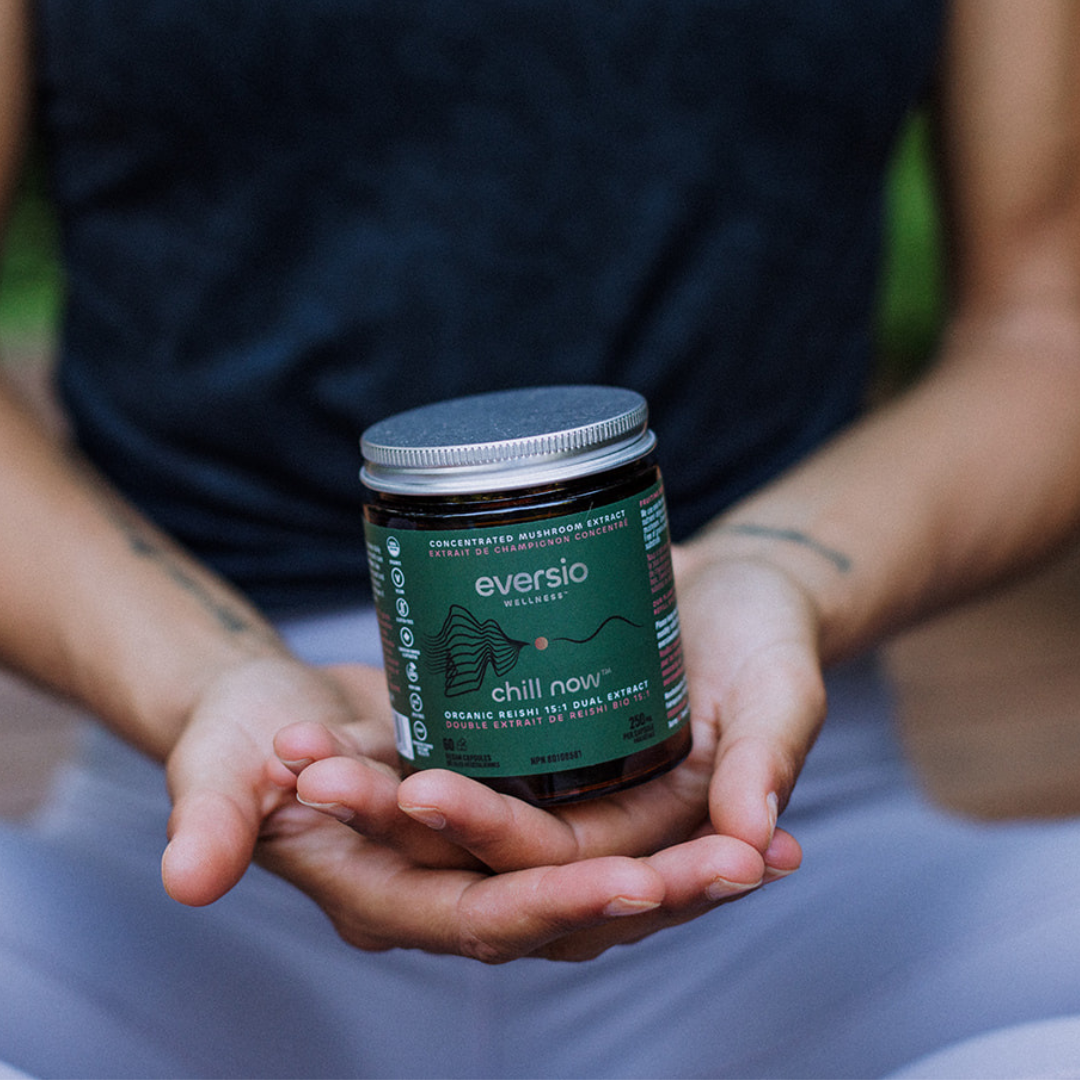
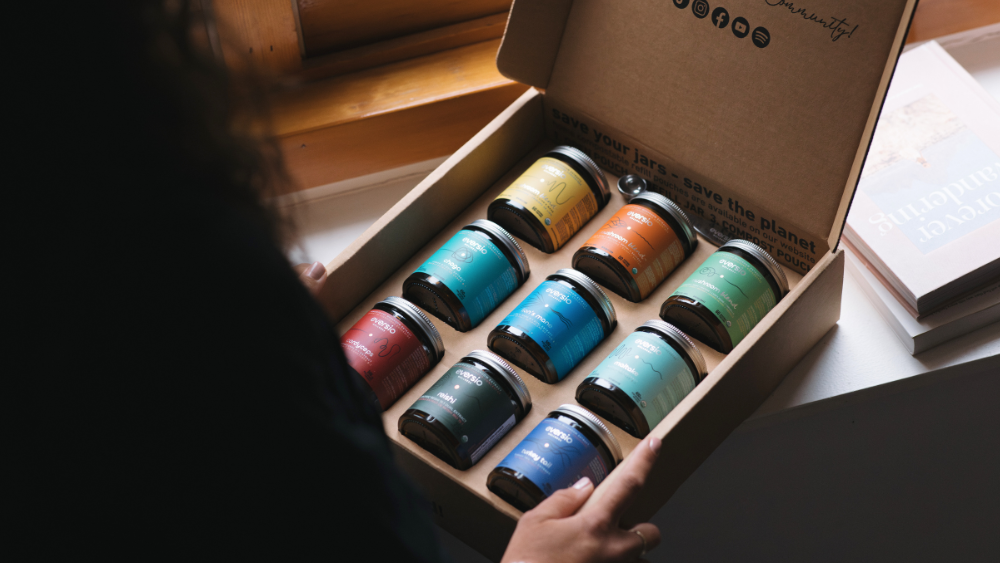







Leave a comment
All comments are moderated before being published.
This site is protected by hCaptcha and the hCaptcha Privacy Policy and Terms of Service apply.